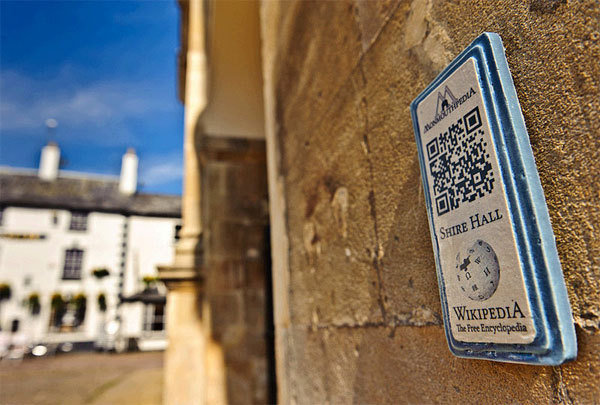A South Australian man has been arrested after allegedly placing a fake QR code over a store’s legitimate Covid-19 check-in code.
Colin Mark Davies, 51, was charged with two counts of obstructing operations that are part of the country’s Covid-19 emergency response.
Police also charged him with possessing a prohibited weapon after searching his home in Adelaide and finding a double-sided knife.
Davies allegedly placed a fake QR code over the check-in code of Franco’s Fruit and Veg, a family-run shop in Adelaide suburb South Plympton.

False code
Australia uses a system similar to the UK’s Test and Trace scheme, which allows people to check into the locations they visit so that they can be notified if they come into contact with a Covid-19 outbreak.
When scanned by a user’s smartphone, the fake QR code opened an anti-vaccination website.
Davies’ lawyer said he “wanted to get his message out to the public”.
He was released on bail, the terms of which prohibit him from visiting Adelaide’s Forbes Shopping Centre or possessing any lose QR code labels.
South Australia Police said no personal data was released through the incident.
“Any person found to be tampering or obstructing with business QR codes will likely face arrest and court penalty of up to $10,000 (£5,600),” they said.
People who suspect false QR codes have been attached to a Covid-19 check-in code are urged to contact police.
QR code revolution
The UK is using Test and Trace, which includes the NHS’ Covid-19 contact tracing app, to better control the Covid-19 pandemic.
However, the NHS app has proven difficult to implement, with a recent update blocked by Apple and Google on privacy grounds.
The update had been planned to allow users to share their log of scanned venue QR codes with a central database, which is not permitted under Apple and Google’s Exposure Notifications framework.
QR (quick response) codes were invented in Japan in the early 1990s to track car components and are capable of storing a large amount of information, often including a pointer to a website or application.
The pandemic has accelerated the rollout of the codes as restaurants and pubs install systems allowing users to view a menu, order and pay via a smartphone.





